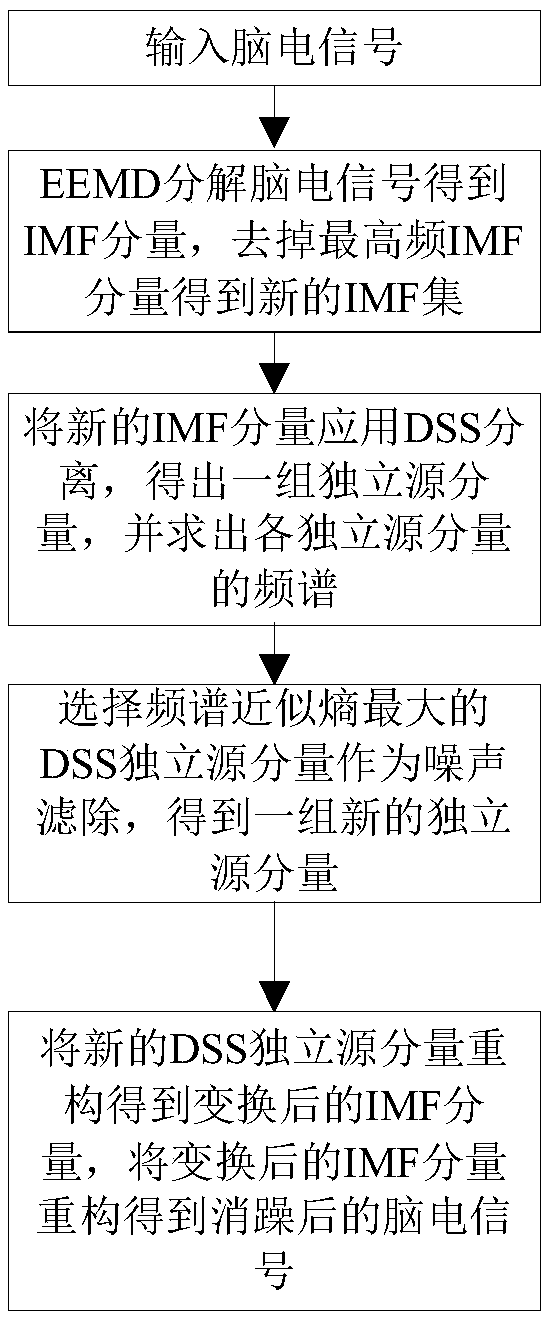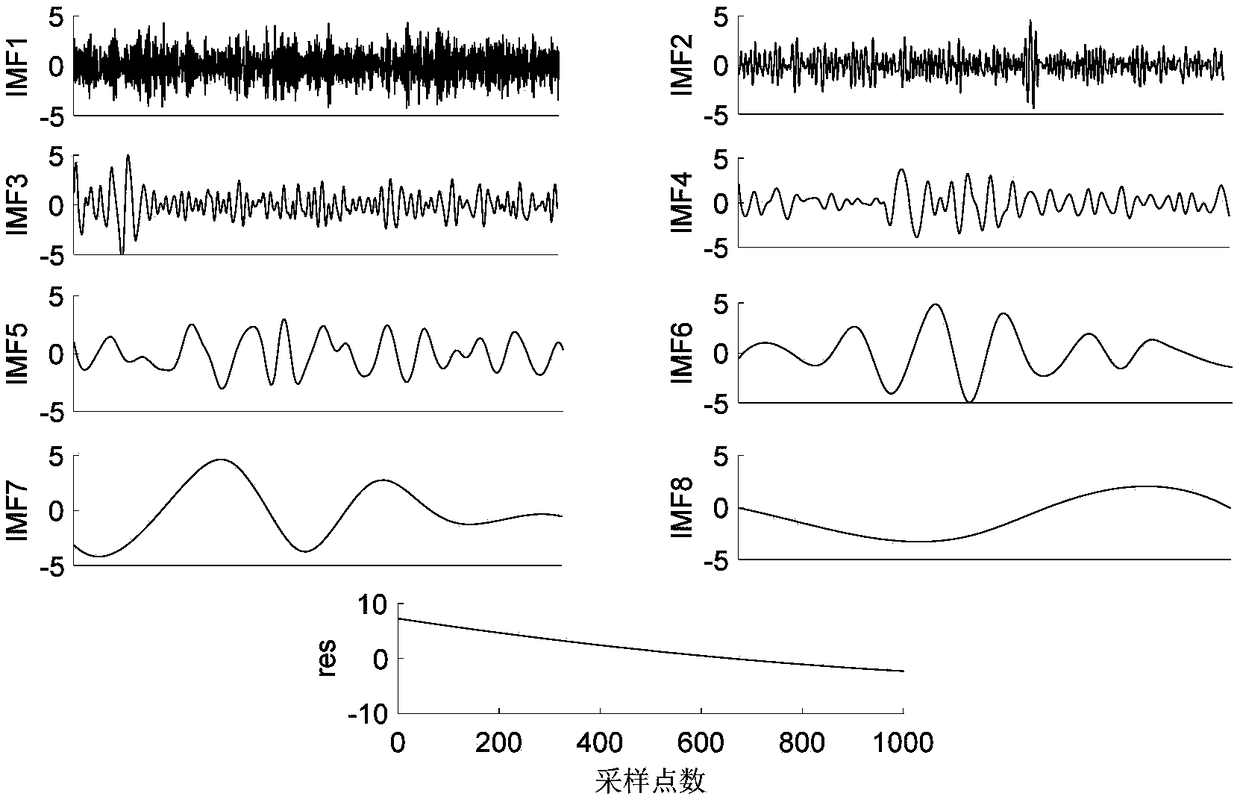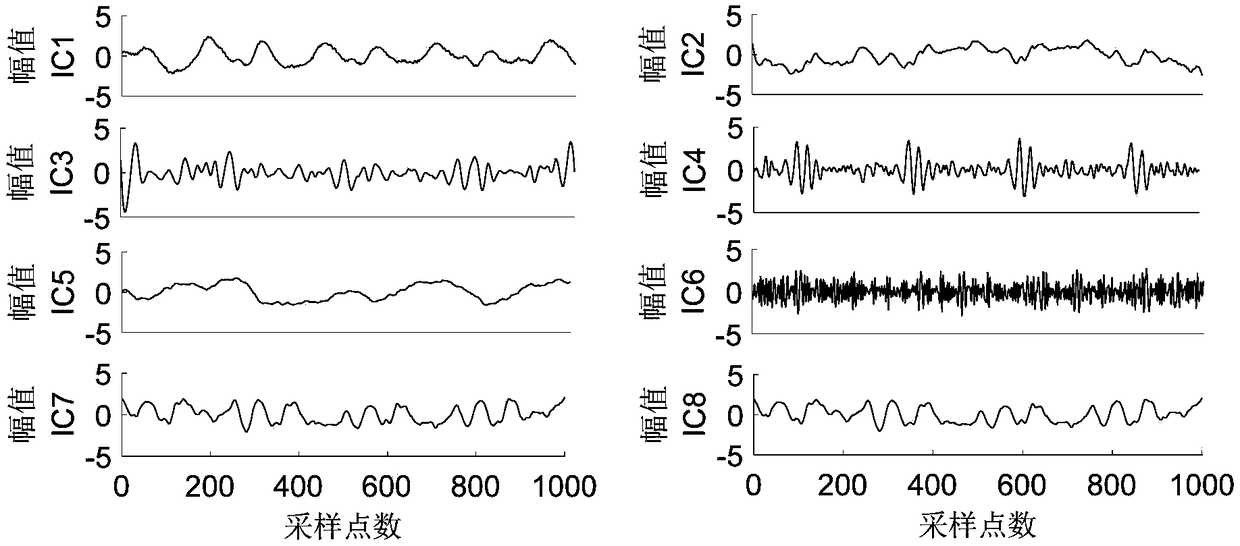EEG signal denoising method based on EEMD and DSS-ApEn
An EEG signal and denoising technology, applied in the field of signal processing, can solve problems such as the inability to directly determine the effective signal of independent source components and the uncertain order of independent source components, and achieve the effect of broad application prospects
- Summary
- Abstract
- Description
- Claims
- Application Information
AI Technical Summary
Problems solved by technology
Method used
Image
Examples
Embodiment Construction
[0022] The EEG signal denoising method based on EEMD and DSS-ApEn of the present invention will be described below with reference to the accompanying drawings.
[0023] figure 1 For the EEG signal denoising processing flow, its implementation mainly includes the following steps:
[0024] (1) Apply EEMD to decompose the signal to be denoised into IMF sets, and remove the highest frequency IMF components to obtain a new IMF set X.
[0025] Apply EEMD to decompose the signal to be denoised into IMF sets, as follows:
[0026] Step 1. Add white noise n with a mean of 0 and a constant standard deviation to the signal s(t) to be processed 1 (t), get the signal s to be decomposed 1 (t).
[0027] Step 2. The EMD algorithm decomposes the signal s 1 (t), get n IMF components imf i1 (t) and remainder r n1 (t), namely:
[0028]
[0029] Among them, n is the number of decomposition layers.
[0030] Step 3. Repeat the above two steps T-1 times, but add different white noise with ...
PUM
 Login to View More
Login to View More Abstract
Description
Claims
Application Information
 Login to View More
Login to View More - R&D
- Intellectual Property
- Life Sciences
- Materials
- Tech Scout
- Unparalleled Data Quality
- Higher Quality Content
- 60% Fewer Hallucinations
Browse by: Latest US Patents, China's latest patents, Technical Efficacy Thesaurus, Application Domain, Technology Topic, Popular Technical Reports.
© 2025 PatSnap. All rights reserved.Legal|Privacy policy|Modern Slavery Act Transparency Statement|Sitemap|About US| Contact US: help@patsnap.com



